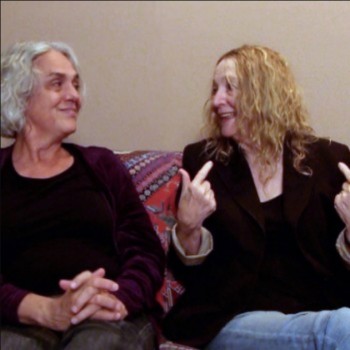Module IV: AEP Theory: The Philosophy Behind the Therapy
Betty Cannon, Ph.D. and Robyn Chauvin, M.A.,L.P.C.
TBA
 |
|
The Training: Applied Existential Psychotherapy (AEP) interlaces the insights of contemporary existential and psychoanalytic approaches with techniques inspired by Gestalt and other experiential therapies. This class explores the theoretical background to AEP, especially its grounding in the existential phenomenology of Jean-Paul Sartre. Sources will include Betty Cannon's book on Sartre and Psychoanalysis along with material from the book she is currently writing on AEP and many articles, videos, and book chapters on existential philosophy and therapy. Demonstration videos and clips, live demonstrations, and experiential exercises provide examples of the importance of theory to practice.
Students should come away with a thorough understanding of the importance of having a coherent philosophy of what it means to be human and how change occurs in psychotherapy and everyday life. Although we do not advise discussing philosophy in therapy, this philosophical grounding should help immensely in choosing effective interventions to help facilitate growth and change in the moment to moment practice of therapy. We will, however, emphasize that the decision to change or not to change is in the hands of the client, not the therapist. Learning to practice psychotherapy in what we call the "spirit of play" rather than in what Satre calls the "spirit of seriousness" should also help to address therapist issues such as burn-out and other outcomes of an overly "serious" (i.e., mechanistic and deterministic) approach to therapy.
Tentative Start Date: Spring 2026
Certification Hours: 48
The Trainers: Betty Cannon, Ph.D., Boulder Psychotherapy Institute President and AEP founder, is a licensed psychologist and certified Gestalt therapist. She has worked with individuals, couples and groups in Boulder for over 40 years and trained and supervised psychotherapists for over 30 years. She is professor emerita of the Colorado School of Mines and Senior Adjunct Faculty at Naropa University. Betty is a member of the editorial boards of three professional journals: Sartre Studies International, Existential Analysis, and Review of Existential Psychology and Psychiatry. She is an internationally known author, lecturer, and workshop presenter. She is the author of many journal articles and book chapters on existential psychotherapy. Her book, Sartre and Psychoanalysis, is often considered a classic in existential psychology.
Robyn Chauvin, M.A., L.P.C., is BPI's most Senior Trainer. She is a music therapist and musician as well as a Gestalt Therapist and AEP therapist and trainer. She has been working in private practice in Boulder and Longmont since 2008. Her previous work was in in-patient psychiatric contexts and hospice, and she brings a wealth of insight and examples from those contexts as well as private practice to her teaching. Robyn offers supervision/consultation, practice, and process groups as well as trainings at BPI. A prominent member of the LBGTQ community, she is currently writing about gender identity, developmental issues, and the practice of psychotherapy. She is well-known in the BPI community for her humor and wit as well as her Dream Process Groups and the Dream Training Module she teaches at BPI. She has taught and co-taught (with Betty) many other training modules at BPI.
- From the Spirit of Seriousness to the Spirit of Play: Toward a Psychology of Freedom
- Search for a Method: Existential Phenomenology versus ‘Scientific’ Positivism
- Consciousness as No Thingness: Freedom, Relationality, and Meaning-Making
- How Shall We Know Ourselves? Modes of Consciousness, Forms of Self-Reflection
- Temporalization: Past as Ground, Future as Meaning, Present as ‘Presence to Being’
- Embodiment: The Lived Body and the Body For Others
- The ‘Look' of the Other: Intersubjectivity, Conflict, and Authentic Relating
- The Construction of the Ego, the Denial of Spontaneity, and the Origins of Self-Deception
- The Defenses as ‘Boundary Disturbances’: An Existential View
- Exploring the Past in the Present: Transference, Countertransference, and Enactments
- Nothingness, Change, and Play: The Psychological ‘Instant’ of Radical Reorientation
- Intervening in the Spirit of Play: Therapist as Facilitator, Client as Agent